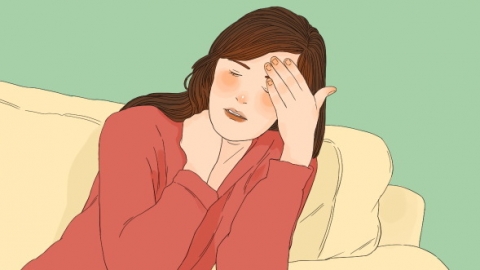What causes unexplained nervousness, panic, and anxiety?
Generally, unexplained feelings of mental tension, panic, and anxiety may be caused by stress reactions, excessive nervous excitement, generalized anxiety disorder, panic disorder, neurasthenia, or other factors. It is recommended to seek medical attention promptly, identify the underlying cause, and receive symptomatic treatment under a doctor's guidance. Specific analyses are as follows:

1. Stress response: Recent exposure to stressful events such as exams or workplace changes can trigger the body’s defense mechanisms, leading to tension and anxiety. Stress can be relieved through deep breathing, jogging, or talking with family and friends to vent emotions. Typically, emotional symptoms gradually subside.
2. Excessive nervous excitement: Long-term sleep deprivation and excessive caffeine intake can lead to sustained overactivity of the sympathetic nervous system, resulting in palpitations and tension. It is important to regulate sleep schedules, reduce consumption of coffee and strong tea, and relax the nervous system before bedtime through foot baths or listening to soft music.
3. Generalized anxiety disorder: Characterized by persistent, unfocused anxiety accompanied by restlessness, insomnia, and other symptoms. Patients may take medications such as sertraline hydrochloride tablets, paroxetine tablets, or fluvoxamine maleate tablets as prescribed, along with psychological counseling to improve symptoms.
4. Panic disorder: Sudden episodes of intense palpitations and a sense of impending doom, occurring abruptly and recurrently. Patients should take medications such as lorazepam tablets, alprazolam tablets, or clonazepam tablets as directed by a physician to relieve acute symptoms, and undergo long-term cognitive behavioral therapy.
5. Neurasthenia: Prolonged mental stress leads to cerebral dysfunction, causing anxiety and irritability. Patients may take oryzanol tablets, vitamin B1 tablets, or estazolam tablets as prescribed. Daily routines should avoid excessive fatigue and maintain emotional calmness.
In daily life, it is important to establish regular作息 (sleep-wake) routines, avoid staying up late and overexertion. Cultivating hobbies such as calligraphy or yoga can help divert attention. Diet-wise, reduce intake of spicy and stimulating foods, and consume more fresh fruits and vegetables rich in vitamins to help stabilize mood.






